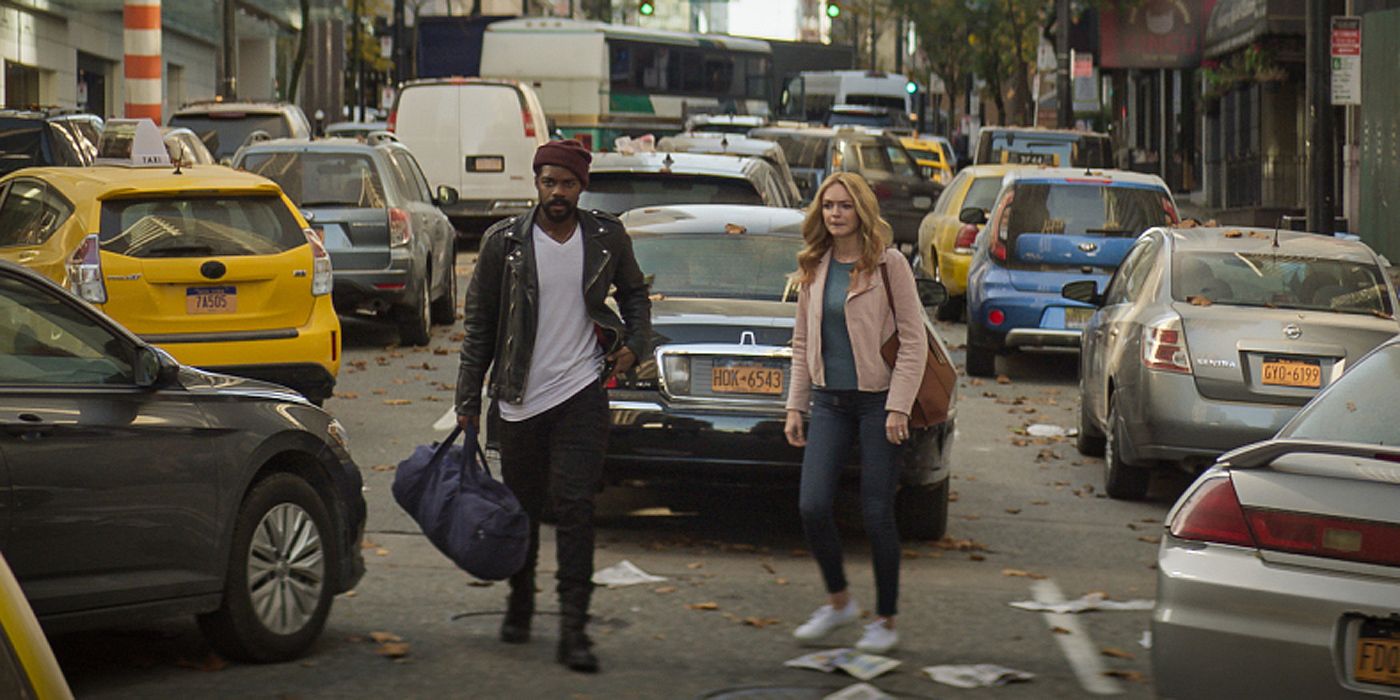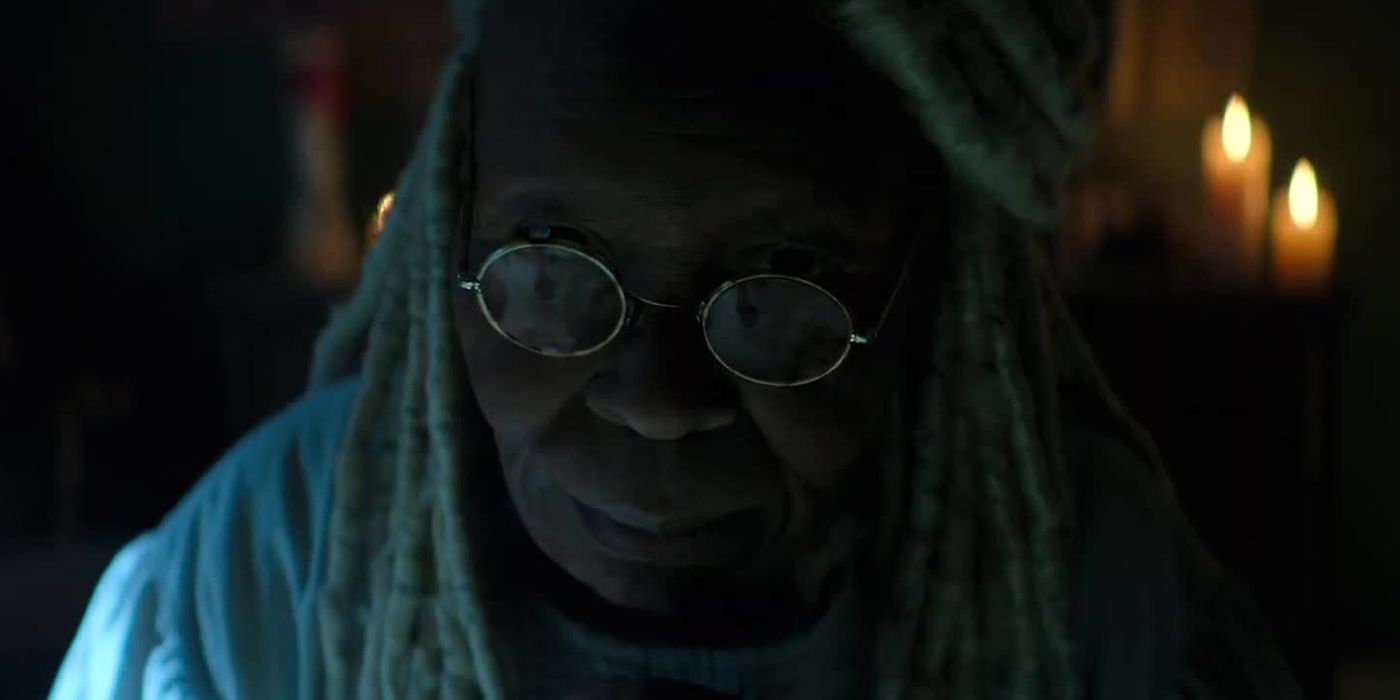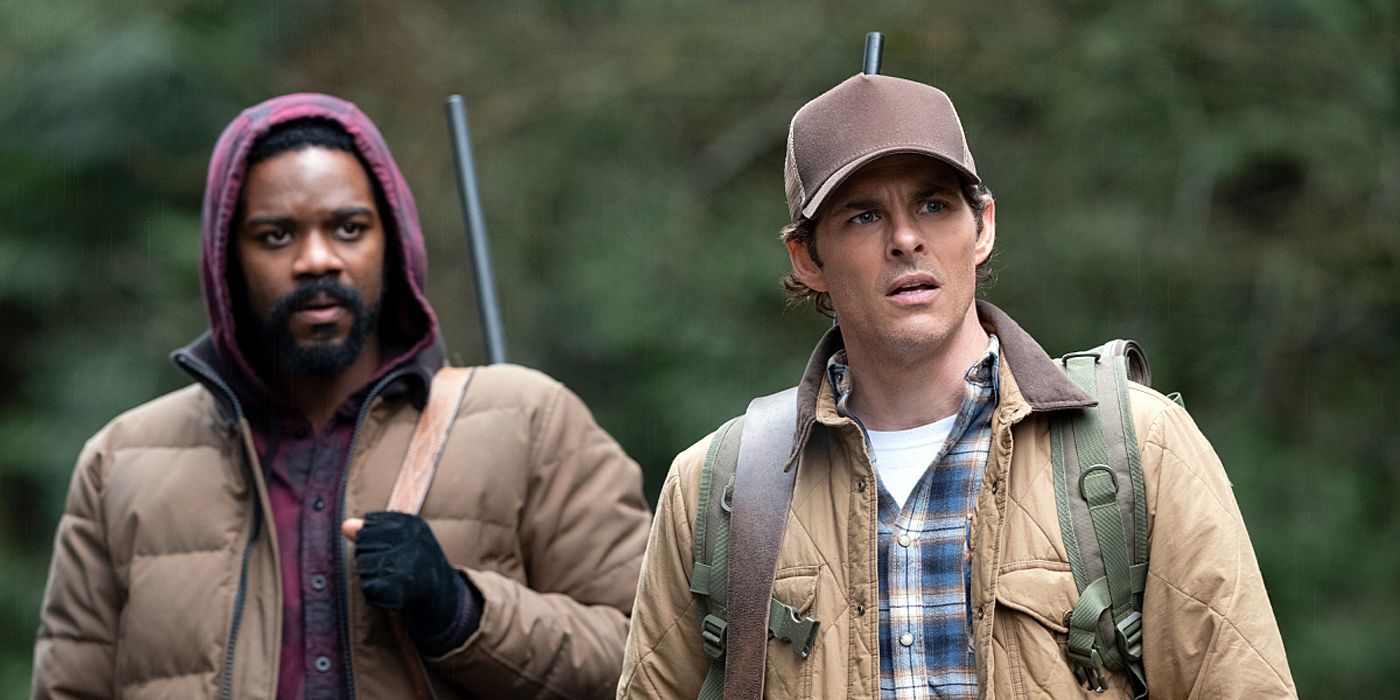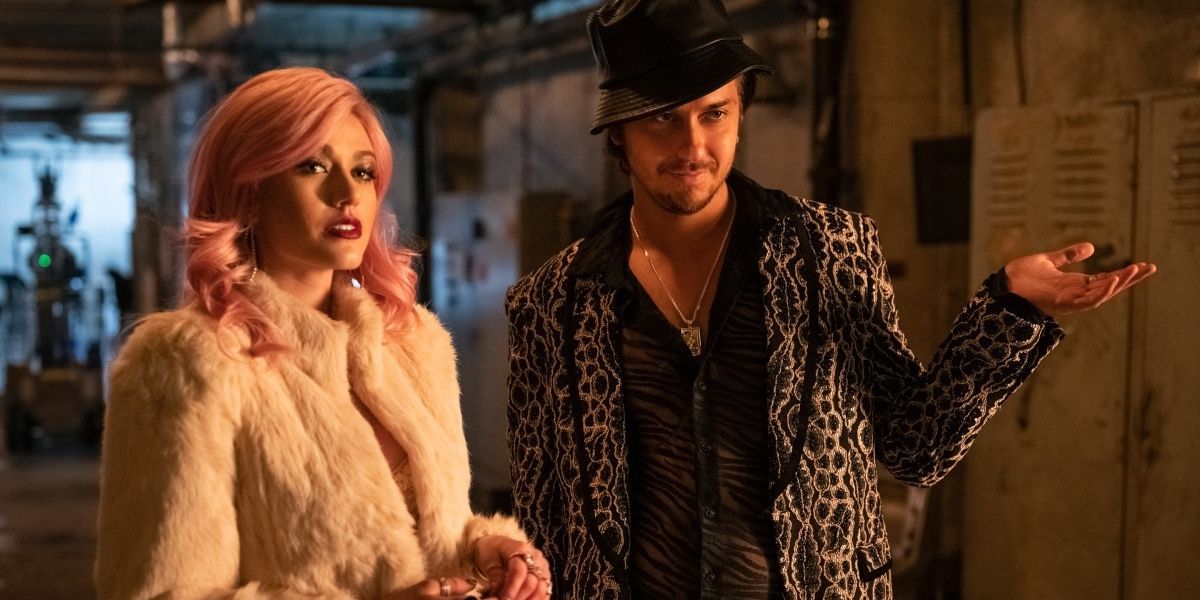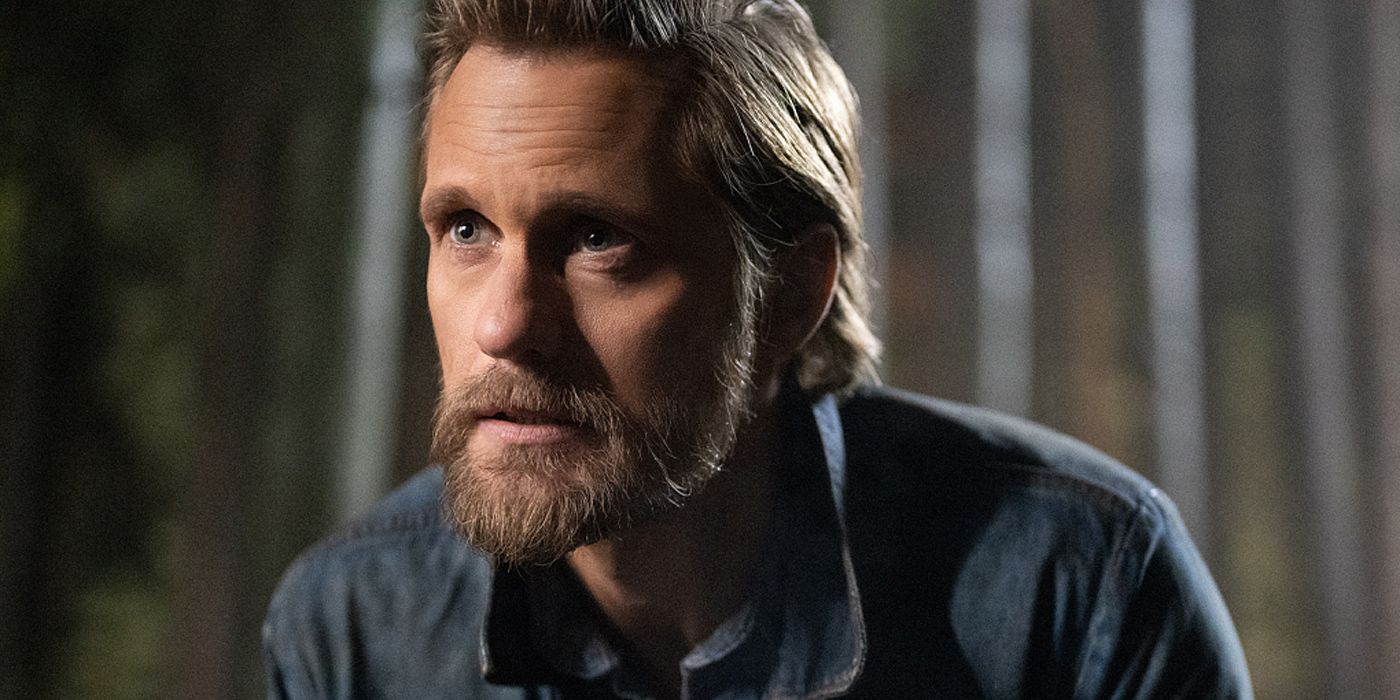The Stand is perhaps one of the biggest, most ambitious original series available on Paramount+ right now. Premiering this past December, the series followed Stephen King's classic story of humanity caught in the middle of an epic war between the forces of good and evil in the immediate aftermath of a deadly contagion that swept across the globe. Available to stream in its entirety on Paramount+, The Stand provides a fresh update to King's post-apocalyptic tale, while staying true to its spirit.
In an exclusive interview with CBR, showrunner Benjamin Cavell discussed how he and the production set out to make King's story their own. He complimented the series' main cast and production design and shared the impetus behind including a coda written by King himself not present in the original novel or the previous 1993 television miniseries adaptation.
CBR: This adaptation had been in development for a long time as a feature film, with some of the cast attached before it became an event series. How was the casting process for The Stand?
Benjamin Cavell: Ultimately, it was a pleasure because the cast is beyond the dreams of avarice. They were all so engaged and determined to do right by these iconic characters they were playing. Amber [Heard] was planning to appear in Josh Boone's version of the film and they each came to it differently, Amber was attached while someone like Alex [Skarsgård] was not. Alex, we approached just as we were getting into production. We had always known we were going to cast Flagg last in some way. It's such an important character, but he also functions like the shark in Jaws; he wasn't going to appear until the series got going so we had a little more time on that.
But then you've got Whoopi [Goldberg], who wanted to play Mother Abagail since the book came out, apparently. She really wanted to play in the original miniseries, when she was like 40 years old. She loved Ruby Dee and that performance but the idea she, at 40, wanted to play this 108-year old woman is pretty staggering. She had really been following it ever since. She's such a genuine fan and always responded to this and wanted to do it so we got her to come do it for us which was such a blessing.
As much as I love the rockabilly approach in the '90s version, I love how you've got Jovan Adepo as Larry Underwood in this. How was it adapting the musical sensibilities for Jovan and ending every episode on a fantastic needle drop?
Cavell: I want to give a shoutout to our music supervisor Season Kent. She's really wonderful and she introduced me to the work of a guy named Durand Jones and his band Durand Jones & the Indications. He's just a really wonderful, talented singer and the timbre of his voice actually sounds like Jovan. As soon as we heard his stuff, I knew it was going to be amazing and he cowrote our version of "Baby, Can You Dig Your Man" with our composers Mike Mogis and Nate Walcott. They just knocked it out of the park.
King himself has been pretty upfront, publicly and with us, that it bothers him how white and male all of the characters are in his original book. I get it: He was writing it at a different time and in a different America, but he is the first to say that, in 2021, in order for this story to play, you can't tell the story now without having people from more different places who bring more different experiences to what they all go through in the book. I'm so happy we assembled this fantastic cast that does that but doesn't feel forced in the slight reimagining of who these people are because we really tried to be true to the core of them and to show the arc that they have.
Larry still starts out as a self-centered, talented, self-destructive guy and embraces his responsibility to his fellow man, Mother Abagail, the people of Boulder, the world itself and leads the moment of revolution in that climactic scene. In some ways, Larry's arc is the most satisfying in the entire book. He really comes to embrace his status as the hero, especially when Stu turns out to be the one who falls. Stu has been set up as the classic hero of this novel and he doesn't even get to the ultimate climax with the rest of them and Larry has to pick up that mantle. Jovan just is so brilliant and such an interesting and subtly intelligent actor that he's just able to show that arc so gradually and yet so completely; I was blown away by Jovan's performance.
While you have more real estate than the '90s adaptation, you also have a full writers' room and rotating set of directors. How do you keep that sense of consistency while letting the team each bring their own unique voices?
Cavell: That's part of the challenge of being a showrunner and I brought in my old friend Taylor Elmore from Justified to help me shepherd this through production when we were in the first couple episodes. It's my job to maintain the consistency and make it feel like, even with a group of people, we're all telling the same story. In some ways, the directors we had couldn't be more different: Josh Boone versus Vincenzo Natali versus Bridget Savage Cole and Danielle Krudy. You want everybody to be able to express themselves and bring their unique flair to it and yet you're constantly finding that balance where you can't have something that feels completely outside of the show you're making, no matter how interesting it is or how brilliant a directorial choice is. If it doesn't fit within the project that everybody's collaborating on, then it just doesn't work.
Sometimes the showrunner has to be the traffic cop, letting through the things that feel like they're of a piece and trying to sift out the things that aren't going to play that way. I couldn't be happier with where it ended up. I feel like each of those directors got to bring their unique style to it and direct episodes that would feel very different if they were directed by anybody else but all of those episodes add up to as a whole instead of separate series mashed into one.
In terms of production design, the two most impressive sets are Flagg's Las Vegas but you also hit the ground running with post-apocalyptic New York. I was wondering if you could speak to those ambitious set designs.
Cavell: The set designs and level of ambition and complexity is beyond anything I've ever been involved with. Aaron Haye, our production designer, is brilliant and he's a huge King fan and hugely experienced with production design that can be integrated seamlessly with VFX, which is certainly what you have to do if you're going to make post-apocalyptic New York in Vancouver, which we did. That was a thing that I was concerned about going in but what they were able to do, it just looks so lavish. It's obviously horrifying in an apocalyptic way, but it looks like a big movie in terms of what he was able to pull off, like shutting down blocks of downtown Vancouver strewn with debris and broken-down cars.
I can't say enough about the work he did, both on that kind of scale and also on a scale with an attention to detail, like with what Harold had in his bedroom. Aaron is a guy who's really savvy, to go from a guy painting on these enormous canvases and reimagining the skyline of Las Vegas, working with Jake Braver, our VFX supervisor, to integrate our Inferno Casino into the Vegas Strip. And he was also able to render Harold's room in a way that's just different from what we were expecting but just works perfectly for the character and the story that we were telling. It's really amazing that they were able to run that gamut.
Even something like the Maine set is full of references to King's entire body of work.
Cavell: Yeah, that was certainly conscious, with Aaron Haye being a huge lifelong King guy. All of us are very aware the adapting what is certainly regarded by some as the masterpiece of the modern master of this kind of storytelling. It felt like we were doing our best to honor this iconic story, guy and body of work. Those Easter eggs are there but the story doesn't turn on them. If you're a fan, the hope is, when you're rewatching, you're noticing little nods that may have just gone by the first time. This keeps on revealing and giving riches the more you stare at it and go through it.
You have the most up-to-date version of The Stand, with this series including a coda written by King himself present nowhere else. How was it making sure it seamlessly fit into the original story while providing a button to the overall story?
Cavell: One of the things it did for us was give us confidence that we were on the right track because it wasn't clear when we began if he was going to write the coda for us. He told us there was something he was thinking about and playing with but it wasn't clear if he was going to give us broad strokes that we were going to take and run with. He read the first couple drafts of what we were doing and he was really convinced by them. He saw we were doing nonlinear storytelling and making all these choices that we were making and he loved them and understood that we were really making it our own and telling our own story. He was inspired or trusted us enough that he wanted to write his coda and have it be part of the story we were telling. Whenever people ask me if I gave notes to Stephen King, my response is, "Yes, I gave him a note thanking him for writing our coda." [laughs]
The coda for him essentially solves a problem, from his point of view, that he had been feeling for decades about the ending: Frannie didn't get to participate in the stand and she's obviously one of the protagonists of the novel. She's eight months pregnant when they set out to cross the Rocky Mountains and go to Vegas, so she can't go with them, but that means she misses out on the confrontation with Flagg. He wanted to rectify that and give her her own Flagg confrontation and he did just so brilliantly.
I'm glad that you say it fits into our narrative but also feels like it's own separate piece because that's explicitly our intention. We didn't want to make it feel like something from another show but also give him and the coda the space to really be its own separate piece of work. I love your characterization that it feels of piece and yet separate from the main body of the show. I'm proud of how that elevates us.
Now that the series is done and available to stream in its entirety on Paramount+, what are you most proud of from this adaptation and what it lends to King's canon?
Cavell: I'm most proud of the structure that we found for it, both in terms of the nonlinear storytelling and a number of choices we made to make our protagonists more central to the resolution of the story. I think it sets it apart from both the novel and the original miniseries and I think it allows us to be something different from what those are. It gets at some themes in the book that are really relevant to the world that we're currently inhabiting.
Starring James Marsden, Odessa Young, Jovan Adepo, Owen Teague, Greg Kinnear, Amber Heard, Henry Zaga, Nat Wolff, Brad William Henke, Irene Bedard, Whoopi Goldberg and Alexander Skarsgård, The Stand is now streaming on Paramount+ in its entirety.

